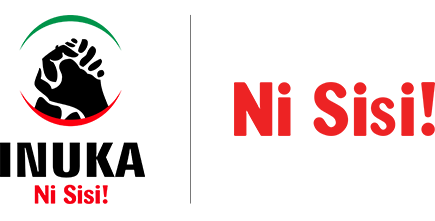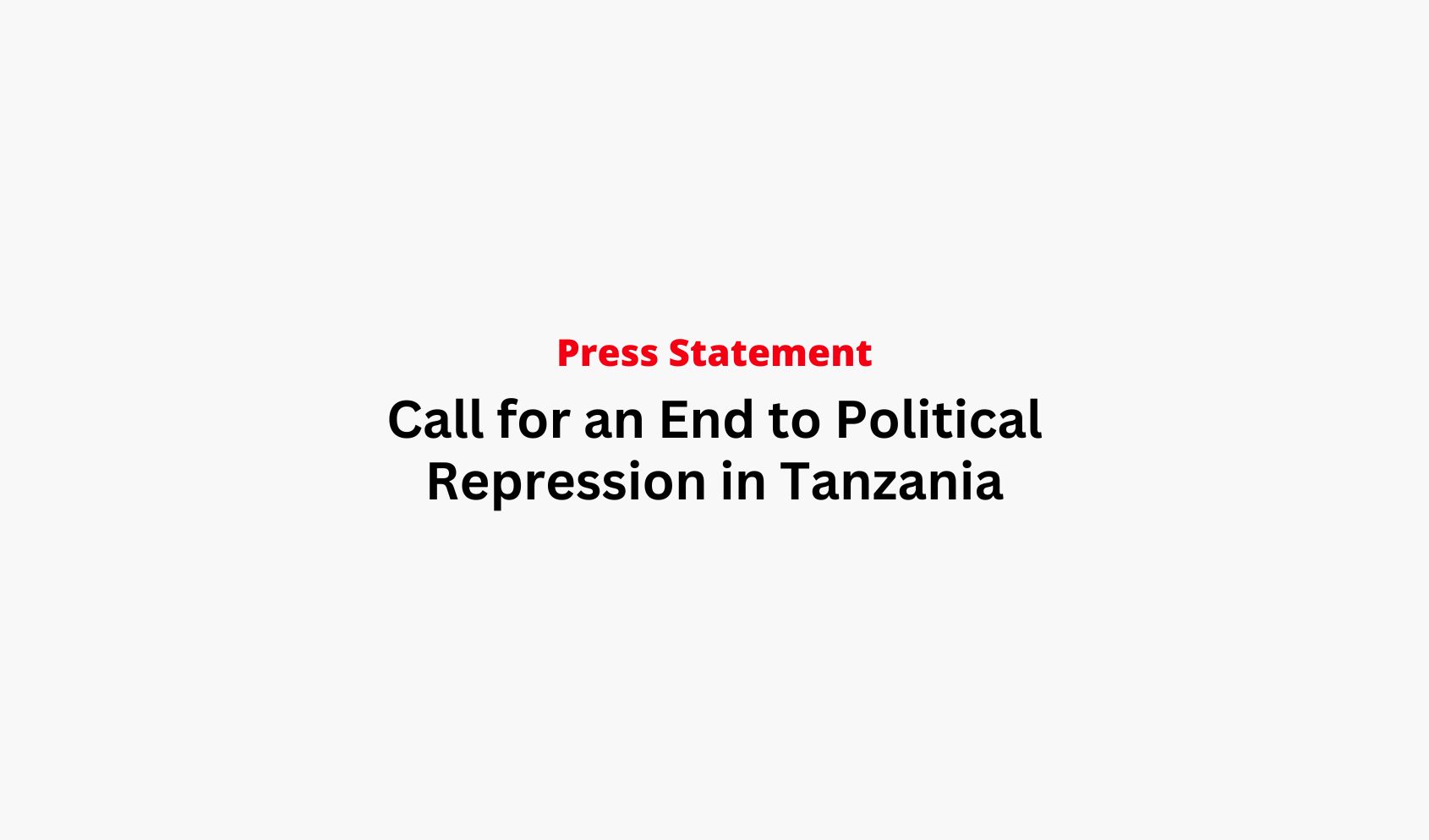Nairobi, Kenya – May 20, 2025
In light of recent developments in Tanzania—including rising civic unrest, a shrinking of the democratic space, and growing citizen demands for accountability—Inuka Kenya Ni Sisi!, alongside other human rights organizations, expresses deep concern over what appears to be an escalating crackdown on opposition voices ahead of the upcoming general elections in October 2025. The arrest of opposition leaders, coupled with reports of abductions and targeted violence against government critics, has drawn widespread condemnation and raises serious questions about the country’s commitment to democratic principles and the rule of law.
Tundu Lissu, a prominent Tanzanian opposition leader, human rights lawyer, and former Member of Parliament, is widely recognized for his outspoken criticism of government corruption and authoritarianism. In September 2017, Lissu survived an assassination attempt, was exiled and on his return in 2022 he was placed under house arrest when he cited irregularities in the elections. In early 2023, he returned again to Tanzania in what was seen as a test of President Samia Suluhu’s openness to political pluralism. In May 2025, Lissu was charged with treason, prompting outrage from civil society and leading to regional solidarity from Kenyan and Ugandan activists. His court hearing drew attention due to the Tanzanian government’s reaction, including the arrest and deportation of human rights defenders from the region who had gone to observe the court process in solidarity.
The shrinking of civic space and hostility toward human rights defenders—must be understood against a backdrop of Tanzania’s post-independence political legacy, gradual liberalization, and recent resurgence of authoritarianism. Tanzania’s political journey begun with strong one-party rule under President Julius Nyerere, who promoted unity, socialism (Ujamaa), and self-reliance. During this time, opposition was not allowed, and civil society had little freedom. In the 1990s, Tanzania introduced multi-party democracy, allowing opposition parties, independent media, and civil society groups to emerge.
However, the ruling party, CCM, kept a firm hold on power. Under President Magufuli (2015–2021), civic space shrank sharply. Opposition rallies were banned, media was silenced, and civil society was closely monitored. New laws were used to control information and suppress dissent. When President Samia Suluhu Hassan took office in 2021, many hoped for change. She reopened some media and freed political prisoners, but deeper reforms have not happened. President Samia’s recent criticism of regional solidarity efforts shows a growing resistance to external scrutiny and signals a return to one party dictatorship. The silence from the governments of Kenya and Uganda reeks of complicity of both Presidents Yoweri Museveni and William Ruto in the actions of Suluhu. The arrest and deportation of regional civic actors’ signals hostility toward collaboration and solidarity among East African peoples.
Tanzania’s actions undermine the spirit of the East African Community (EAC) and African Union (AU) charters, which commit member states to uphold democracy, human rights, and free movement of people. If left unchecked, this will erode the legitimacy and accountability of these regional frameworks.
We will not remain silent.
We call upon:
- Citizens, youth, and grassroots movements across the continent to stay vigilant, organized, and courageous in defending people-centered leadership and inclusive governance. The youth in Tanzania must especially rise to the occasion of securing a democratic future for their country.
- Civil society across East Africa to raise their collective voice, document civic repression, and stand in principled solidarity with Tanzanian actors working for justice and democratic renewal.
- The media and civil society to amplify the voices of activists like Tundu Lissu (CHADEMA), Zitto Kabwe (ACT-Wazalendo), and Maria Sarungi (feminist advocate)
- The East African Community (EAC) and African Union (AU) to engage the Tanzanian government and uphold the foundational values of democratic governance, human rights, and regional cooperation.
- Development partners and the international community to align diplomatic and financial engagement to Tanzania with clear expectations for democratic accountability, legal protections, and civil liberties.
- The United Nations Human Rights Council (UNHRC) and relevant UN Special Rapporteurs to take urgent action: initiate investigations, issue public statements, and demand the protection of civic actors and political opposition in Tanzania.
As Tanzania’s 2025 elections loom, we face a critical moment to prevent further democratic reversal. The world failed to act decisively during Magufuli’s tyranny; we must not repeat that mistake.
A Luta Continua!
Dr. Kawive, Wambua
Inuka Kenya Ni Sisi!

